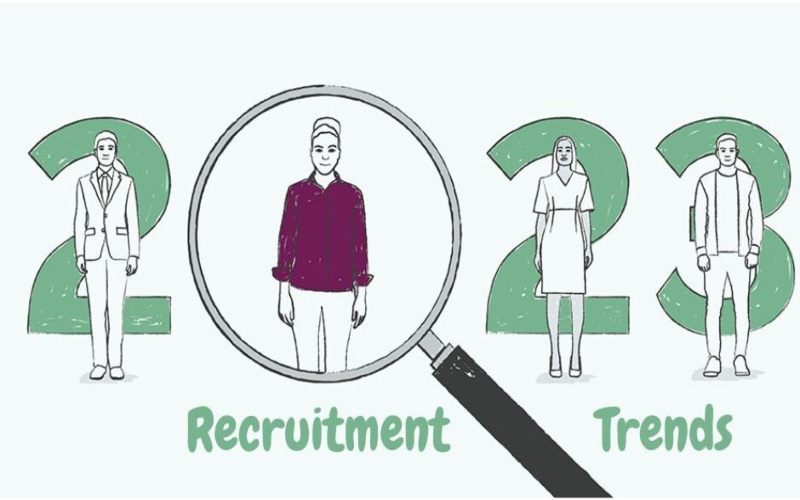
5 Red Flags That Suggests A Recruiting Agency Is Committing Fraud With You.
The term Fraud has been very common to us. Whether it is about any business, education, banks, or any other sector fraud is seen everywhere. It has been very easy nowadays to make money with false scams. If I say that recruitment agencies can do fraud on you then you will be shocked? Yes, in the name of recruitment agencies people are doing fraud against most innocent people. To all the candidates who are searching for jobs be very careful, you too can be trapped at any moment. It can be anyone any single individual, or any fake recruitment agency who gives you false hopes. As a candidate when you will be coming in contact with any recruitment agency you must keep a few things in mind such as:-
- The real recruitment agencies don't ask for unnecessary money without any proper work.
- The HR will take your interviews if you are selected then you get direct confirmation.
- If you will be selected for any overseas jobs then you can ask for the details of the company it is your right to ask for each and every detail.
- When you would be receiving the offer letter then only the recruitment agency asks you for their service charges.
5 Red flags that suggest a recruiting agency is committing fraud with you:-
1- Spamming of Email with a Free Account
Be aware of recruiters that approach you via free online e-mail accounts from providers like Gmail or Hotmail rather than a professional email address. There could be red flags in the email itself as well. While some scammers may send out emails that are well-written, many may come out as amateurish. The email can be from a bogus recruiter if it has several spelling or grammar issues, improper capitalization, or grammatical mistakes. It's also crucial to take into account email attachments. Use a virus scanner to check the file's validity if you're not sure whether to open it. Some con artists may email attachments with viruses intended to damage your device and steal personal data.
2- Before submitting your application, you should avoid requesting money or needless personal details
You shouldn't be asked for payment upfront while considering work opportunities. Some con artists can ask you to open a new bank account and provide them with the information, or they might direct you to a website where you must fill out a form for a credit report. In these situations, the con artist may claim that they require your information in order to add you to the company's insurance.
Genuine recruiters might want your contact information, a current resume, references, and information about your expected compensation. But they should always be upfront and truthful about why they require these specifics. Never should they request money transfers before beginning the hiring procedure. Never divulge your complete Social Security number, date of birth, or any other card number before commencing the onboarding process for a new job. Always verify that the website you are sent to is secure if a "recruiter" requests that you complete a form. This can be done by examining the web URL bar. Only websites that begin with HTTPS:// are secure; those that start with HTTP:// are not.
3- Recruiters avoid questions regarding the open position
Recruiters should always have the expertise of the position they are suggesting. Alarm bells should go off if they seem evasive, don't properly address your inquiries, or skim over the more minute facts.
If they can't satisfactorily respond to your inquiries, there's a red flag that they could not be who they claim to be. Nevertheless, sincere recruiters occasionally have a discreet position and are unable to reveal the client's name. They should nonetheless be knowledgeable about the sector and will provide as much detail as they can regarding the position.
4- Job offers that are false but seem too wonderful to be genuine
Scammers will try to persuade consumers to divulge information by making their employment offers as alluring as possible. If they offer you a job that looks too good to be true, be on the lookout. False job descriptions may feature an unusually long list of benefits, whereas real job descriptions typically focus on the positive aspects of a position. Additionally, they can state that no prior experience is required and that the hours are less than would be typical for the position. False job offers frequently feature salaries that are too high to be true. A starting pay that is 50-100% over the market rate, for instance, is probably not real. It's worth considering whether the position is a part of a scam if the promised wage doesnand#39;t seem to fit the job description.
5- Promising you a job without conducting an interview
Some con artists might even make you an offer of employment without ever having you sit for an interview. Some will even go so far as to conduct a phone interview with you, but this won't be with the company that is hiring, and you'll just be speaking to the phony recruiter. Scammers may also utilize an unusual or unsafe messaging service to invite you to an online job interview. By requesting that you create an account on the online chat platform, scammers can get your personal information. It is advised that you do your homework before using any software or signing up for any websites.
A genuine recruiter will spend time making sure you are a good fit for the organization that is hiring.
These are the few red flags that a candidate should always keep in mind. Before applying to any of the recruitment agencies check all of their social media pages like linked in, Facebook, Youtube, email, website, and Phone number, and even visit them in the office. Save yourself from these frauds. Hope this blog helps you find your correct path.












